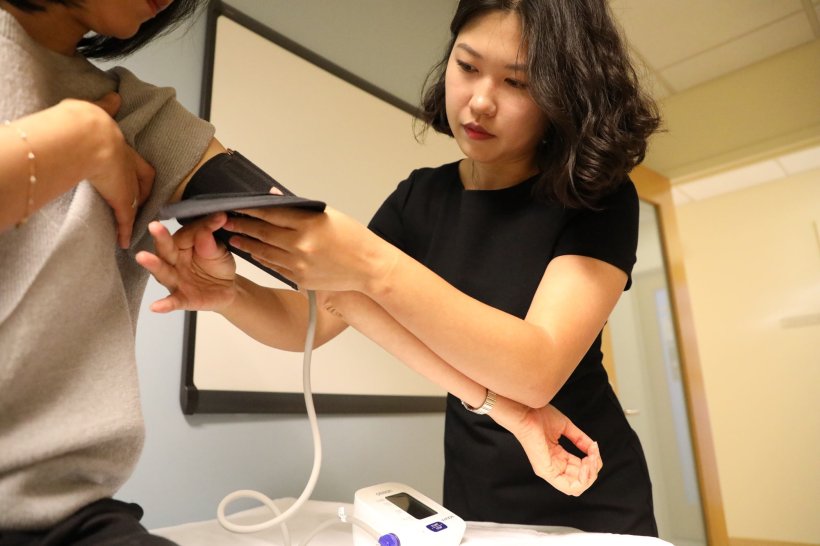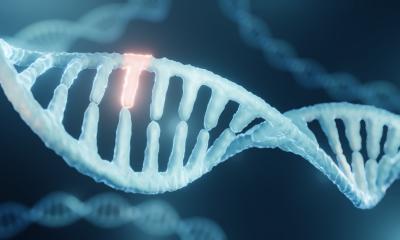Image source: Adobe Stock/Wirestock
News • Rude awakening
Why waking up to your phone alarm could putting your health at risk
Morning alarm clocks could be raising blood pressure, putting users at greater risk for adverse cardiovascular events, such as stroke and heart attack, according to new research from the University of Virginia’s School of Nursing.
Nursing doctoral student Yeonsu Kim studied how being forced awake – like by a phone’s alarm – contributes to morning blood pressure surge, an increase in blood pressure that happens when people move quickly from being asleep to awake. Morning blood pressure surge is a risk factor for adverse cardiovascular events, like stroke and heart attack. While everyone experiences it to some degree, those who more regularly experience exaggerated morning blood pressure surges may be more at risk.
Kim studied 32 participants over two days. During sleep, participants wore smartwatches and finger blood pressure cuffs. The first night, they were told to awaken naturally, without an alarm. The second night, they were instructed to set an alarm to awaken them after only five hours of sleep.

Image source: University Of Virginia; photo by Christine Kueter, School of Nursing
Kim compared morning blood pressure surge measures between the natural and forced awakening scenarios. Although the results from this pilot must be interpreted with caution and validated in a larger sample, her research showed that those who were forced awake had a morning blood pressure surge that was 74% greater than those who awoke naturally – evidence of a link between short sleep duration, forced awakening and morning blood pressure surge. Adults with cardiovascular disease might experience more of the adverse effects of a morning blood pressure surge when they get little sleep and are jolted awake.
When morning blood pressure surge is excessive, it can activate the sympathetic nervous system, which produces the “fight or flight” response, which places stress on the heart, which pumps harder and stronger. That can cause fatigue, shortness of breath, anxiety, neck stiffness, and, when acute, nosebleeds and headaches.
Evidence has also shown that people who sleep fewer than seven hours a night (as one in three Americans do) are more likely to experience greater morning blood pressure surge and are at an increased risk for having a stroke or a heart attack, due to increased activity in the sympathetic nervous system.
Kim’s study builds on existing research about the best way to wake up. A 2020 study found waking up to melodic sounds (like a song you can hum along to) helps people avoid sleep inertia, a kind of persistent grogginess that can last up to two hours. In another study in 2021, researchers learned that exposure to light in the morning tells your body to slow its melatonin production, helping people wake up and stay awake. Kim’s study also provides insight for future, larger studies and the development of interventions, including wearable devices that can detect sleep stages and promote gentle awakening and potentially reduce the severity of the blood pressure increase.
Source: University of Virginia
22.12.2023





